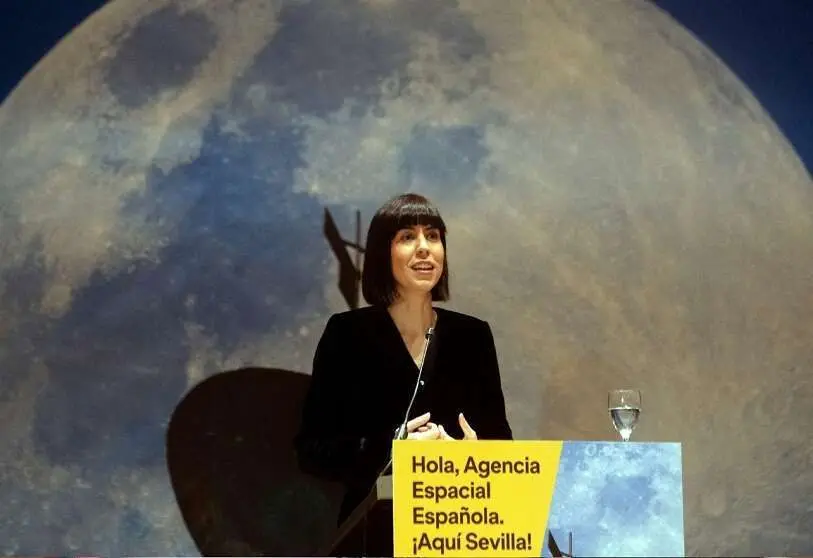Final decision for the Spanish Space Agency 22 months after its announcement

Almost two years after it was floated, exactly 22 months after the then director of the Cabinet Office of the Presidency of the Government, Iván Redondo, surprisingly anticipated the creation of the Spanish Space Agency, the Council of Ministers held on Tuesday, 7 March, approved the Statute that is to govern the life and finances of the Agency, the final prolegomenon of its official birth.
The Spanish proverb says that "better late than never" and we must welcome with great satisfaction a birth that is long overdue because, as the second paragraph of the Royal Decree approving the Statute states, "the creation of the Spanish Space Agency is a project that has been widely demanded in recent years by the entire Spanish space sector".
However, the official birth and entry into operation of the Spanish Space Agency will still be a long time coming, as "it will take place with the holding of the constituent session of its Governing Council, which will take place within a maximum period of three months from the entry into force of this Royal Decree", which will be on 9 March, the day after its publication in the Official State Gazette (BOE).
At the press conference following the Council of Ministers, the Minister of Science and Innovation, Diana Morant, appeared exultant, repeating ad nauseam how "strategic", "key", "priority" and "essential" the space sector is for "helping and protecting Spanish society", and whose still unborn Space Agency she describes as "a national project". Yet another one.

A country project that, to cite a nearby example, comes four years after the Portuguese government of Prime Minister Antonio Costa set up its space agency on 12 March 2019, has a Space Law, and is building a base in the Azores for the launch of micro-launchers. As for France, our northern neighbour, it is worth mentioning that its space agency (CNES) dates back to 1961, for whose successive governments it is of real strategic importance and not a chau-chau, as demonstrated by the millions of dollars allocated to the CNES by Paris.
Diana Morant, who replaced Pedro Duque as minister in July 2021, boasted that the Agency had been set up "in record time". She recalled that the Science Law, which was approved in September, gave one year for its formalisation. From her point of view, the government "has been six months ahead of that commitment," she said. He who is not consoled is because he doesn't want to be. But it has been almost two years since Iván Redondo uncovered the issue.
Many deputies and senators of the Joint Commission on National Security have confessed to me that Iván Redondo's announcement on 27 May 2021 left them "stunned" by the unexpectedness of his words. Today, 22 months have already passed in which the government of President Pedro Sánchez has developed a whole litany of previous steps to justify the obvious: the need for an institution that directs, coordinates and establishes a national coherence to the different competences in the field of space distributed among around a dozen ministries and public institutions and an autonomous space agency, that of Catalonia, born in 2020.
The creation of the Spanish agency was first introduced in the National Security Strategy of December 2021 as action line number 19, "to lead the effort in space matters, efficiently coordinate the different national departments with responsibilities in the space sector and unify international collaboration and coordination".

Finally, its establishment as a state agency was shoehorned into the third additional provision of the new Science Act. In addition, it was decided that it would be attached to two ministries: the Ministry of Defence, headed by Margarita Robles, and, of course, the Ministry of Science and Innovation, headed by the ever-smiling Diana Morant,
For its first year of life, 2023, the Agency will have an "initial budget of more than 700 million", Minister Morant stressed, and a team of "75 people, who are already working in the different ministries with a highly qualified and professional profile". However, none of the possible candidates have been informed of the conditions for their transfer to Seville, the headquarters that the Sanchez government has decided to use the term "main" in a manu militari sweetened manner.
The Statute of the Spanish Space Agency, which states in its articles that its acronym is ESA, is long and detailed. It defines that the Presidency will be assumed by the head of the Ministry of Science and Innovation, who heads a Governing Council made up of representatives from different ministries. So Diana Morant, barring any surprises, will be the first president of the ESA.

But the head of the Agency will be an executive director, who will be responsible for "the direction, coordination and management of the Agency". Until such time as he or she is appointed, this task will be carried out on an interim basis by the current commissioner for the Aerospace PERTE, Miguel Belló, of recognised prestige in the sector.
The ESA Executive Director will exercise his five-year mandate over a structure made up of a General Secretariat and the Directorates of Security and Planning; Programmes and Industry; Science, Technology and Innovation; and Users, Services and Applications, to which the Office of Space and Society will be added for public communication functions. To be continued.

